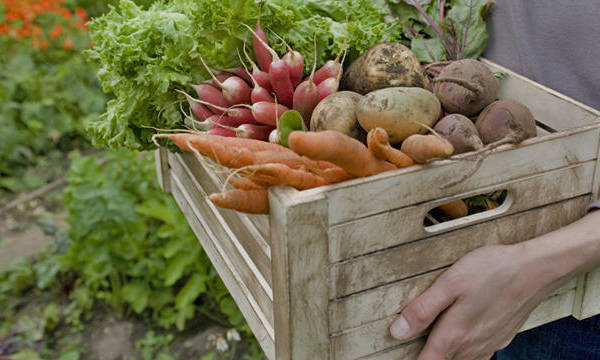
Switching Over to Organic Foods – we Get You The Right Advice!
16 Nov 2015 | 3 min Read
Priyal Jain
Author | 1 Articles
Before we dive into whether organic food is the right choice or not, let’s begin with the basics. What is organic food? After all, until now, food was just food right? No one bothered about which food has how much nutritious value in the previous generation? As health is a prime area of concern for all of us now, not only the nutritional value but even the source is very important now! – are we eating food that is more harmful than helpful? Is it hormone injected, genetically modified, chemically treated? And how does this impact any of us?
To answer all these questions and to understand the basics about organic foods, we spoke to Priya Jain, Clinical Nutritionist and lead Good Health and Weight loss coach at Obino, an Indian weight loss coaching app.
Q. What is organic food and how is it different from the regular food we consume?
Organic foods are foods or ingredients grown in a way that is environment and animal friendly, literally from the farm to the market! This means, of course, no use of pesticides, synthetic fertilizers, sewage sludge, genetically modified organisms, or ionizing radiation; and in the case of animal food sources – no antibiotics or growth hormones! Sounds wonderful, doesn’t it?
Q. Why is it important to make the switch to organic food? What are the health benefits?
Some of the most important reasons are…
• Reduced exposure to harmful chemicals:
Recent studies suggest that choosing organic food can reduce exposure to heavy metals and toxins, pesticides, etc.
• Enhanced immunity:
Organic animal sources of foods do not make use of antibiotics. Therefore, we are less likely to be exposed to & hence become resistant to antibiotics. And especially for children, this is key to better infection control given their lower levels of immunity.
• Better Taste:
Since these produces are generally available locally, they are likely to be fresher and ergo, healthier.
• Environmental Safety and Animal Welfare:
Our health depends on our eco-system & this is a vicious cycle. So, what’s good for the environment and animals is definitely good for us.
Q. What foods should I definitely switch to the organic variety if I am pregnant?
Certain foods are more likely to be loaded with pesticides – apples, pears, grapes, strawberries, peaches, bell peppers, potatoes, cucumbers, green leafy vegetables, pumpkins, beans. So be careful while you go shopping for these. Always try to opt for seasonal foods – when it comes to both fruits & vegetables – always!
Q. What kind of food changes can I make with my children with respect to including organic food in their daily diet?
Simply prefer seasonal fruits and vegetables over foods which are made available annually by artificial means. Wash fruits and vegetables thoroughly and be careful about where you shop from. There are many options today for sourcing organic fruits and vegetables that are safe and healthy to consume for you and your family. Try and ask where the produce is being sourced from, or you can also explore pop up farmer’s markets in your city or locality if you want to buy organic produce.
Q How beneficial is organic food for a growing child?
Young, developing bodies and brains are far more susceptible to the harmful effects of chemicals emanating from conventional foods. Hence the consumption of organic foods will definitely bolster your efforts to build your child’s health and immunity.
A


Suggestions offered by doctors on BabyChakra are of advisory nature i.e., for educational and informational purposes only. Content posted on, created for, or compiled by BabyChakra is not intended or designed to replace your doctor's independent judgment about any symptom, condition, or the appropriateness or risks of a procedure or treatment for a given person.
